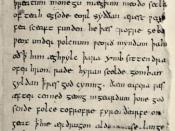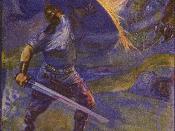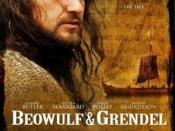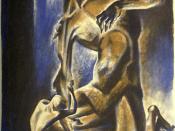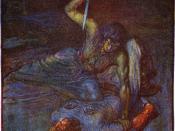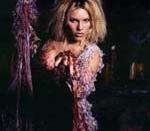Beowulf - A Hero Beowulf is an epic poem about a man and some of his adventures. Beowulf, the main character, is the hero of the story. He possesses many traits that cause him to be not only an epic hero, but a tragic one, too. The traits that many heroes in literature have are: # A hero's conception is often unusual, and by tradition his mother is a virgin. # Usually there is a plot to kill him immediately after his birth. # Although little is known about his childhood, he grows to maturity in the home of foster parents after his narrow escape with death. # After he grows to manhood, he returns and achieves a victory over a king or a wild animal. # He marries a princess. # He becomes the king. # After a long and uneventful rule and no longer in the graces of the gods, he is driven from his kingdom where he mysteriously dies.
# Although not buried, he typically has one or more holy graves. The hero, like Beowulf, does not have to possess every quality or exactly as they are stated.
# A hero's conception is often unusual, and by tradition his mother is a virgin. Beowulf's conception is not mentioned in the poem. He was already at adulthood when he was introduced in the story. "In his far-off home Beowulf, Higlac's Follower and the strongest of the Geats - greater And Stronger than anyone anywhere in this world..."ÃÂ (Beowulf; lines 194-196) Also, his parents are hardly ever spoken of in the story, making it harder for the reader to know anything about his past.
# Usually there is a plot to kill him immediately after his birth. The reader does not know if this is true or not since Beowulf's birth is never mentioned in the poem. # Although little is known about his childhood, he grows to maturity in the home of foster parents after his narrow escape with death. Again, nothing is known of his childhood. This gives the reader reason to believe that Beowulf might have grew up with his parents. However, later in the story Beowulf reveals to the reader that Beowulf actually did grow up in the home of someone other than his parents. "I was seven years old when Hrethel opened his home and his heart for me, when my king and my lord Took me from my father and kept me, taught me, Gave me gold and pleasure, glad that I sat On his knee."ÃÂ (Beowulf; lines 2428-2432) # After he grows to manhood, he returns and achieves a victory over a king or a wild animal. Beowulf never left his home, so he does not have to return to it. He does leave his home to battle a monster in a foreign land. "So Beowulf Chose the mightiest men he could find, The bravest and best of the Geats, fourteen In all, and led them down to their boat."ÃÂ (Beowulf; lines 204-207) Beowulf returns home after his battle, but never leaves it to settle in another land. Beowulf achieves his victory over a monster that plagued the Danes for some time. "The battle was over, Beowulf Had been granted new glory."ÃÂ (Beowulf; lines 818-819) "Beowulf, A prince of the Geats, had killed Grendel, Ended the grief, the sorrow, the suffering Forced on Hrothgar's helpless people By a bloodthirsty fiend."ÃÂ (Beowulf; lines 829-833) Beowulf not only defeated one monster, but two. The mother of the monster returned after he was killed. "And it was known that a monster had died But a monster still lived, and meant revenge."ÃÂ (Beowulf; lines 1256-1257) Beowulf had to defeat her also to be fully appreciated by the Danes.
"Then he saw, hanging on the wall, a heavy Sword, hammered by giants, strong And blessed with their magic, the best of all weapons But so massive that no ordinary man could lift Its carved and decorated length. He drew it From its scabbard, broke the chain on its hilt, And then, savage, now, angry And desperate, lifted it high over his head And struck with all the strength he had left, Caught her in the neck and cut it through, Broke bones and all. Her body fell to the floor, lifeless, the sword was wet With her blood, and Beowulf rejoiced at the sight."ÃÂ (Beowulf; lines 1557-1569) # He marries a princess. This is one of the few traits that Beowulf does not possess. Beowulf does not get married.
# He becomes the king. When Higlac, the king of the Geats, died, his son Herdred became the ruler. His reign was short and uneventful, and Beowulf took over as king when Herdred died. "And Herdred, his son, who'd ruled the Geats After his father, had followed him into darkness... then, when Higd's one son was gone, Beowulf ruled in Geatland."ÃÂ (Beowulf; lines 2201-2206) # After a long and uneventful rule and no longer in the graces of the gods, he is driven from his kingdom where he mysteriously dies. Beowulf's rule was long, but not uneventful and poor. "Beowulf ruled in Geatland, Took the throne he'd refused, once, And held it long and well."ÃÂ (Beowulf; lines 2201-2203) Beowulf may not have been in good graces with the gods, however, the reader is inclined to believe otherwise. Beowulf did many good deeds and the story does not speak of any wrongdoings of his. Beowulf does have a mysterious death, though. He is killed in a fight with a dragon. This is mysterious since Beowulf has always beaten the odds and come out the victor of a battle. Having him be too weak to kill the dragon leaves the reader with reason to believe he may not be in good graces with the gods. "His soul sensed how close fate Had come, felt something, not fear but knowledge Of old age. His armor was strong, but his arm Hung like his heart."ÃÂ (Beowulf; lines 2421-2423) # Although not buried, he typically has one or more holy graves. One of the customs of the Anglo-Saxons was to put a person of nobility on a ship when he dies to sail out to heaven. However, Beowulf tells his followers to build him a tomb that everyone can see to remind them of him. "Have the Geats build me a tomb, When the funeral flames have burned me, and build it Here, at the water's edge, high On this spit of land, so sailors can see This tower, and remember my name, and call it Beowulf's tower, and boats in the darkness And mist, crossing the sea, will know it."ÃÂ (Beowulf; lines 2801-2808) Beowulf possesses many of these hero traits. Some of them make him an epic hero. Others make him a tragic hero. His battles with Grendel and Grendel's mother contribute to his epic heroism, while his battle with the dragon contributes to his tragic heroism. Either way the poem is read, Beowulf turns out to be a hero.
